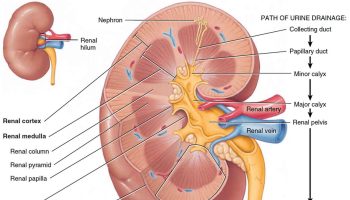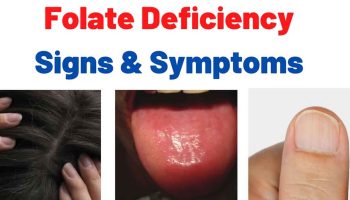Contents
- What is serotonin syndrome
- How long does serotonin syndrome last?
- Serotonin syndrome long term effects
- Serotonin syndrome vs NMS
- Serotonin syndrome causes
- Serotonin syndrome prevention
- Serotonin syndrome signs and symptoms
- Serotonin syndrome complications
- Serotonin syndrome diagnosis
- Serotonin syndrome treatment
- Serotonin syndrome prognosis
What is serotonin syndrome
Serotonin syndrome also called serotonin toxicity is a potentially life threatening condition due to excessive serotonin in your body 1, 2. Serotonin syndrome most often occurs when two medicines that affect the body’s level of serotonin are taken together at the same time. The medicines cause too much serotonin to be released or to remain in the brain area. Serotonin syndrome (serotonin toxicity) can occur when you increase the dose of such a drug or add a new drug to your regimen. Certain illegal drugs and dietary supplements also are associated with serotonin syndrome. For example, you can develop serotonin syndrome if you take migraine medicines called triptans together with antidepressants called selective serotonin reuptake inhibitors (SSRIs), and selective serotonin/norepinephrine reuptake inhibitors (SSNRIs).
Common selective serotonin reuptake inhibitors (SSRIs) include:
- Citalopram (Celexa)
- Escitalopram (Lexapro)
- Fluoxetine (Prozac)
- Paroxetine (Paxil)
- Sertraline (Zoloft)
Selective serotonin/norepinephrine reuptake inhibitors (SSNRIs) include:
- Desvenlafaxine (Pristiq)
- Duloxetine (Cymbalta)
- Levomilnacipran (Fetzima)
- Milnacipran (Savella)
- Venlafaxine (Effexor)
Common triptans include:
- Almotriptan (Axert)
- Eletriptan (Relpax)
- Frovatriptan (Frova)
- Naratriptan (Amerge)
- Rizatriptan (Maxalt)
- Sumatriptan (Imitrex)
- Zolmitriptan (Zomig)
If you take these medicines, be sure to read the warning on the packaging. It tells you about the potential risk of serotonin syndrome. However, do not stop taking your medicine. Talk to your doctor about your concerns first.
Serotonin syndrome is more likely to occur when you first start taking or increase the dose of the medicine..
Older antidepressants called monoamine oxidase inhibitors (MAOIs) can also cause serotonin syndrome when combined with the medicines described above, as well as meperidine (Demerol, a painkiller), fentanyl, dextromethorphan (cough medicine), and others.
Drugs of abuse, such as ecstasy, LSD, opiates, cocaine, methamphetamine and amphetamines have also been associated with serotonin syndrome.
Serotonin is a chemical your body produces that’s needed for your nerve cells and brain to function. But too much serotonin causes symptoms that can range from mild (shivering and diarrhea) to severe (muscle rigidity, fever and seizures). Severe serotonin syndrome can be fatal if not treated.
Many medications can cause serotonin toxicity, and drug interactions are an important factor. Serotonin syndrome should be suspected in patients taking serotonergic drugs who present with autonomic or mental status changes and neurological findings. The findings of clonus, ocular clonus, hyperreflexia, and hypertonicity should prompt a doctor evaluation and medication review.
People with serotonin syndrome will usually stay in the hospital for at least 24 hours for close observation. Treatment is based on severity and focuses on prompt cessation of offending agents, treatment of hyperthermia, and use of benzodiazepines to decrease hypertonicity and neurological excitability.
Serotonin syndrome treatment may include:
- Benzodiazepine medicines to decrease agitation, seizure-like movements, and muscle stiffness
- Cyproheptadine (Periactin), a drug that blocks serotonin production
- Intravenous (through the vein) fluids
- Stopping medicines that caused serotonin syndrome
- In life-threatening cases, medicines that keep the muscles still (paralyze them), and a temporary breathing tube and breathing machine will be needed to prevent further muscle damage.
Milder forms of serotonin syndrome may go away within a day of stopping the medications that cause symptoms and, sometimes, taking drugs that block serotonin. The use of serotonin (5-HT) antagonists should be considered in moderate and severe cases. Increased awareness and monitoring of patients beginning treatment with antidepressants can decrease the risk of worsening anxiety, agitation, and possibly suicide.
Serotonin syndrome key points
- Serotonin syndrome is not an idiosyncratic drug reaction, but a predictable response to elevated serotonin levels. Medications that affect any of the steps in serotonin metabolism or regulation can provoke toxicity.
- Antidepressants are frequently implicated in serotonin syndrome. Interactions with other medications, such as common over-the-counter products (eg, dextromethorphan), can cause serious toxicity.
- Symptoms can occur within 6 to 8 hours of initiating or increasing the dosage of serotonergic medications. Drugs with long half-lives can interact several weeks after discontinuation.
- Treatment is based on the severity of the presentation. Many cases will be self-limited if the medications are stopped.
What does serotonin syndrome feel like?
Signs and symptoms of serotonin syndrome include:
- Agitation or restlessness
- Confusion
- Sweating
- Tremors
- Nausea
- Vomiting
- Raised body temperature
- Restlessness
- Overactive reflexes
- Fast heart rate and high blood pressure
- Dilated pupils
- Loss of muscle coordination or twitching muscles
- Muscle rigidity
- Heavy sweating
- Diarrhea
- Headache
- Shivering
- Goose bumps
Severe serotonin syndrome can be life-threatening. Signs and symptoms include:
- High fever
- Seizures
- Irregular heartbeat
- Unconsciousness
Symptoms of serotonin syndrome typically occur within hours of taking a drug. Individuals often experience an increased heart rate, restlessness, and confusion. The individual may experience heavy sweating, muscle twitching or rigidity, dilation of the pupils, shivering, headaches, and diarrhea. Symptoms often last for 1 to 3 days before they resolve. More severe cases of serotonin syndrome may involve high fever, irregular heartbeats, seizures, and loss of consciousness.
- If you believe that you or someone around you may be experiencing serotonin syndrome, after starting a new drug or increasing the dose of a drug you’re already taking, call your doctor right away or go to the emergency room. If you have severe or rapidly worsening symptoms, seek emergency treatment immediately. Doctors will check the drug levels, look for signs of infection, and monitor your vital signs. Treatment depends on the severity and type of symptoms. While some individuals will not require treatment, others may require hospitalization. If you or your child is experiencing serotonin syndrome, talk to your doctor about the most current treatment options.
How long does serotonin syndrome last?
People may get slowly worse and can become severely ill if not quickly treated. Untreated, serotonin syndrome can be deadly. With treatment, symptoms usually go away in less than 24 hours.
Milder forms of serotonin syndrome usually go away within 24 to 72 hours of stopping medications that increase serotonin. You may need to take medications to block the effects of serotonin already in your system.
However, symptoms of serotonin syndrome caused by some antidepressants could take several weeks to go away completely. These medications remain in your system longer than do other medications that can cause serotonin syndrome.
Serotonin syndrome long term effects
Serotonin syndrome generally doesn’t cause any problems once serotonin levels are back to normal.
Uncontrolled muscle spasms can cause severe muscle breakdown. The products produced when the muscles break down are released into the blood and eventually go through the kidneys. This can cause severe kidney damage if serotonin syndrome isn’t recognized and treated properly.
If left untreated, severe serotonin syndrome can lead to unconsciousness and death.
Serotonin syndrome vs NMS
Neuroleptic malignant syndrome (NMS) is a rare life-threatening neurological condition that is caused by an adverse reaction to neuroleptic (tranquilizer) or antipsychotic drugs. These drugs are commonly prescribed for the treatment of schizophrenia and other neurological, mental, or emotional disorders. Affected people may experience high fever, muscle stiffness, sweating, unstable blood pressure, stupor, altered mental status, and autonomic dysfunction. In most cases, NMS develops within the first 2 weeks of treatment with the drug; however, neuroleptic malignant syndrome (NMS) may develop any time during the therapy period. The neuroleptic malignant syndrome (NMS) can also occur in people taking anti-Parkinsonism drugs known as dopaminergics if those drugs are discontinued abruptly.
Neuroleptic malignant syndrome (NMS) bears some resemblance to serotonin syndrome, with similar symptoms of fever, mental status changes, and altered muscle tone. However, patients with NMS are usually akinetic with rigidity, have decreased levels of consciousness, and are more likely to have mutism rather than rambling speech, which is associated with serotonin toxicity. More important, the onset of NMS is slow, developing over days rather than hours 3.
The exact underlying cause of neuroleptic malignant syndrome (NMS) is unknown. In some cases, more than one family member can be affected which suggests there may be a genetic component. Upon diagnosis of the condition, the neuroleptic or antipsychotic drug is generally discontinued under a physician’s supervision. Medications and/or other interventions may also be recommended to manage symptoms 4.
Early identification of and treatment for individuals with NMS improves outcome. If clinically indicated, a low potency neuroleptic can be reintroduced very slowly when the individual recovers, although there is a risk that the neuroleptic malignant syndrome (NMS) might recur. Another alternative is to substitute another class of drugs for the neuroleptic. Anesthesia may be a risk to individuals who have experienced neuroleptic malignant syndrome.
Generally, intensive care is needed. The neuroleptic or antipsychotic drug is discontinued, and the fever is treated aggressively. A muscle relaxant may be prescribed. Dopaminergic drugs, such as a dopamine agonist, have been reported to be useful.
Serotonin syndrome causes
Excessive accumulation of serotonin in your body creates the symptoms of serotonin syndrome.
Under normal circumstances, nerve cells in your brain and spinal cord (central nervous system) produce serotonin that helps regulate your attention, behavior and body temperature.
Other nerve cells in your body, primarily in your intestines, also produce serotonin. In these other areas, serotonin plays a role in regulating your digestive process, blood flow and breathing.
Although it’s possible that taking just one drug that increases serotonin levels can cause serotonin syndrome in susceptible individuals, this condition occurs most often when you combine certain medications.
For example, serotonin syndrome may occur if you take an antidepressant with a migraine medication. It may also occur if you take an antidepressant with an opioid pain medication.
Another cause of serotonin syndrome is intentional overdose of antidepressant medications.
A number of over-the-counter and prescription drugs may be associated with serotonin syndrome, especially antidepressants. Illicit drugs and dietary supplements also may be associated with the condition. These drugs and supplements include:
- Selective serotonin reuptake inhibitors (SSRIs), antidepressants such as citalopram (Celexa), fluoxetine (Prozac, Sarafem), fluvoxamine, paroxetine (Paxil) and sertraline (Zoloft)
- Serotonin and norepinephrine reuptake inhibitors (SNRIs), antidepressants such as trazodone, duloxetine (Cymbalta) and venlafaxine (Effexor)
- Bupropion (Wellbutrin, Zyban), an antidepressant and tobacco-addiction medication
- Tricyclic antidepressants, such as amitriptyline and nortriptyline (Pamelor)
- Monoamine oxidase inhibitors (MAOIs), antidepressants such as isocarboxazid (Marplan) and phenelzine (Nardil)
- Anti-migraine medications such as triptans (Axert, Amerge, Imitrex), carbamazepine (Tegretol) and valproic acid (Depakene)
- Pain medications such as opioid pain medications including codeine (Tylenol with codeine), fentanyl (Duragesic), hydrocodone meperidine (Demerol), oxycodone (Oxycontin, Percocet, Percodan) and tramadol (Ultram).
- Lithium (Lithobid), a mood stabilizer
- Illicit drugs, including LSD, Ecstasy, cocaine and amphetamines
- Herbal supplements, including St. John’s wort, ginseng and nutmeg
- Over-the-counter cough and cold medications containing dextromethorphan (Delsym, Mucinex DM, others)
- Anti-nausea medications such as granisetron, metoclopramide (Reglan), droperidol (Inapsine) and ondansetron (Zofran)
- Linezolid (Zyvox), an antibiotic
- Ritonavir (Norvir), an anti-retroviral medication used to treat HIV/AIDS
Risk factors for serotonin syndrome
Some people are more susceptible to the drugs and supplements that cause serotonin syndrome than are others, but the condition can occur in anyone.
You’re at increased risk of serotonin syndrome if:
- You recently started taking or increased the dose of a medication known to increase serotonin levels.
- You take more than one drug known to increase serotonin levels.
- You take herbal supplements known to increase serotonin levels.
- You use an illicit drug known to increase serotonin levels.
Serotonin syndrome prevention
Taking more than one serotonin-related medication or increasing your dose of a serotonin-related medication increases your risk of serotonin syndrome.
Talk to your doctor about possible risks. Don’t stop taking any such medications on your own. If your doctor prescribes a new medication, make sure he or she knows about all the other medications you’re taking, especially if you receive prescriptions from more than one doctor.
If you and your doctor decide the benefits of combining certain serotonin-level-affecting drugs outweigh the risks, be alert to the possibility of serotonin syndrome.
Serotonin syndrome signs and symptoms
Serotonin syndrome symptoms usually occur within several hours of taking a new drug or increasing the dose of a drug you’re already taking.
Signs and symptoms of serotonin syndrome include:
- Agitation or restlessness
- Confusion
- Rapid heart rate and high blood pressure
- Dilated pupils
- Loss of muscle coordination or twitching muscles
- Muscle rigidity
- Heavy sweating
- Diarrhea
- Headache
- Shivering
- Goose bumps
Severe serotonin syndrome can be life-threatening. Signs and symptoms include:
- High fever
- Seizures
- Irregular heartbeat
- Unconsciousness
Table 1. Serotonin syndrome signs and symptoms
| SERIOUSNESS | AUTONOMIC SIGNS | NEUROLOGICAL SIGNS | MENTAL STATUS | OTHER |
|---|---|---|---|---|
| Mild | Afebrile or low-grade fever Tachycardia Mydriasis Diaphoresis or shivering | Intermittent tremor Akathisia Myoclonus Mild hyperreflexia | Restlessness Anxiety | |
| Moderate | Increased tachycardia Fever (up to 41°C) Diarrhea with hyperactive bowel sounds Diaphoresis with normal skin colour | Hyperreflexia Inducible clonus Ocular clonus (slow continuous lateral eye movements) Myoclonus | Easily startled Increased confusion Agitation and hypervigilance | Rhabdomyolysis Metabolic acidosis Renal failure Disseminated intravascular coagulopathy (secondary to hyperthermia) |
| Severe | Temperature often more than 41°C (Secondary to increased tone) | Increased muscle tone(lower limb > upper) Spontaneous clonus Substantial myoclonus or hyperreflexia | Delirium Coma | As above |
Serotonin syndrome complications
Uncontrolled muscle spasms can cause severe muscle breakdown. The products produced when the muscles break down are released into the blood and eventually go through the kidneys. This can cause severe kidney damage if not recognized and treated properly.
Untreated, serotonin syndrome can be deadly. With treatment, symptoms usually go away in less than 24 hours. Permanent organ damage may result, even with treatment.
Serotonin syndrome diagnosis
No single test can confirm a serotonin syndrome diagnosis. Your doctor will diagnose the condition by ruling out other possibilities.
Your doctor will likely begin by asking about your symptoms, medical history and any medications you’re taking. Your doctor will also conduct a physical examination.
To be diagnosed with serotonin syndrome, the person must have been taking a drug that changes the body’s serotonin level (serotonergic drug) and have at least 3 of the following signs or symptoms:
- Agitation
- Diarrhea
- Heavy sweating not due to activity
- Fever
- Mental status changes, such as confusion or hypomania
- Muscle spasms (myoclonus)
- Overactive reflexes (hyperreflexia)
- Shivering
- Tremor
- Uncoordinated movements (ataxia)
Serotonin syndrome is not diagnosed until all other possible causes have been ruled out. This may include infections, intoxication, metabolic and hormone problems, and drug or alcohol withdrawal. Some symptoms of SS can mimic those due to an overdose of cocaine, lithium, or an monoamine oxidase inhibitor (MAOI).
If a person has just started taking or increased the dosage of a tranquilizer (neuroleptic drug), other conditions such as neuroleptic malignant syndrome (NMS) will be considered.
To make sure your symptoms are caused by serotonin syndrome and not due to another cause, your doctor may use tests to:
- Measure levels of any drugs you’re using
- Check for signs of infection
- Check body functions that may be affected by serotonin syndrome
A number of conditions can cause symptoms similar to those of serotonin syndrome. Minor symptoms can be caused by numerous conditions. Causes of moderate and severe symptoms include:
- Anticholinergic syndrome, malignant hyperthermia and neuroleptic malignant syndrome (NMS), serious conditions caused by certain medications
- An overdose of illegal drugs, antidepressant medications or other medications that increase serotonin levels
- Damage (toxicity) associated with illegal drug use
- Severe alcohol withdrawal
Your doctor may order tests to rule out other causes of your symptoms. Tests may include:
- Blood and urine tests
- Chest X-ray
- Computerized tomography
- Spinal tap (lumbar puncture).
Serotonin syndrome treatment
Treatment of serotonin syndrome depends on the severity of your symptoms.
- If your symptoms are minor, a visit to the doctor and stopping the medication causing the problem may be enough.
- If you have symptoms that concern your doctor, you may need to go to the hospital. Your doctor may have you stay in the hospital for several hours to make sure your symptoms are improving.
- If you have severe serotonin syndrome, you’ll need intensive treatment in a hospital.
Depending on your symptoms, you may receive the following treatments:
- Muscle relaxants. Benzodiazepines, such as diazepam (Valium) or lorazepam (Ativan), can help control agitation, seizures and muscle stiffness.
- Serotonin-production blocking agents. If other treatments aren’t working, medications such as cyproheptadine can help by blocking serotonin production.
- Oxygen and intravenous (IV) fluids. Breathing oxygen through a mask helps maintain normal oxygen levels in your blood, and IV fluids are used to treat dehydration and fever.
- Drugs that control heart rate and blood pressure. These may include esmolol (Brevibloc) or nitroprusside (Nitropress), to reduce a high heart rate or high blood pressure. If your blood pressure is too low, your doctor may give you phenylephrine (Neo-Synephrine) or epinephrine (Adrenalin, Epipen).
- A breathing tube and machine and medication to paralyze your muscles. You may need a breathing tube and medication to paralyze your muscles if you have a high fever.
Prompt recognition of toxicity and discontinuation of offending medications are most important. Many cases of serotonin syndrome are self-limiting if medications are stopped early. The mortality of severe serotonin syndrome is estimated to range from 2% to 12%. The Toxic Exposure Surveillance System in the United States reported 93 deaths due to serotonin syndrome in 2002 6.
Treatment is guided by the severity of presentation. There are currently no randomized placebo-controlled trials to guide pharmacologic treatment of serotonin syndrome, although case reports and series suggest several medications that are beneficial in managing the condition.
Supportive care, including intravenous fluids, is indicated in patients with vital sign abnormalities. Neurological symptoms, including serious myoclonus and hyperreflexia, are sometimes treated with benzodiazepines, but there is little evidence for this approach. Hyperthermia should be aggressively managed with external cooling, hydration, and benzodiazepines (eg, diazepam, lorazepam). Patients with a temperature higher than 105.8 °F (41°C) should be intubated with induced neuromuscular paralysis. There is a limited role for traditional antipyretics, as the mechanism of serotonin syndrome is due to muscle tone rather than central thermoregulation. Patient agitation secondary to delirium should be managed using nonpharmacologic strategies and benzodiazepines, when appropriate. Physical restraints should be avoided, as they can increase hyperthermia, lactic acidosis, and rhabdomyolysis 7.
The antihistamine cyproheptadine, which is also a serotonin inhibitor, should be considered in moderate cases and is recommended in severe cases, despite a lack of randomized controlled trial evidence 7. It is available only as an oral preparation; the initial dose is 12 mg; the dosage is then adjusted to 2 mg every 2 hours until symptoms improve 8.
Some antipsychotics have serotonin antagonist effects and are sometimes used 7. Sublingual olanzapine and intramuscular chlorpromazine (50 to 100 mg) are options 9. Chlorpromazine can cause serious hypotension and should be avoided in severe cases with shock.
Caution is required in using antipsychotics for treating serotonin syndrome, as neuroleptic malignant syndrome (NMS) can be misdiagnosed as serotonin syndrome. Also, case reports have implicated antipsychotics as precipitants of serotonin syndrome in individuals receiving concomitant serotonergic medications 10.
Dantrolene, a skeletal muscle relaxant used for treatment of neuroleptic malignant syndrome (NMS), has been reported to improve symptoms of serotonin syndrome in a case series 11; however, it has also been implicated in the development of serotonin toxicity and is not generally recommended 5. Propranolol, which has serotonin antagonist activity and a long half-life, can potentiate hypotension and make improvement in tachycardia a less effective strategy for monitoring response to treatment 5.
Serotonin syndrome prognosis
Serotonin syndrome prognosis (outlook) varies depending on the degree of serotonin toxicity, which is primarily attributable to the dose and type of serotonergic agent 2. Serotonin syndrome typically resolves rapidly and safely when quickly treated 2. Generally, full recovery from serotonin syndrome is expected after stabilization. However, monoamine oxidase inhibitors (MAOIs) are associated with the most severe cases of serotonin syndrome, but intentional overdoses of any serotonergic drug can also result in severe presentations. Mild serotonin syndrome cases may only require observation, while severe serotonin syndrome cases require intensive care. The duration of serotonin syndrome depends on a few factors but is most impacted by the half-life of the culprit medications. When the altered mental status resolves, vital signs are normal, and a normal neurological examination is elicited (no clonus or hyperreflexia), the patient is safe for discharge. After serotonin syndrome resolves, a comprehensive assessment is needed to assess the risks and benefits of resuming the previous serotonergic regimen to prevent another episode of serotonin syndrome 12, 13.
- Watson WA, Litovitz TL, Rodgers GC, Jr, Klein-Schwartz W, Youniss J, Rose SR, et al. 2002 annual report of the American Association of Poison Control Centers Toxic Exposure Surveillance System. Am J Emerg Med. 2003;21(5):353–421. http://www.ajemjournal.com/article/S0735-6757(03)00088-3/fulltext[↩]
- Simon LV, Torrico TJ, Keenaghan M. Serotonin Syndrome. [Updated 2024 Mar 2]. In: StatPearls [Internet]. Treasure Island (FL): StatPearls Publishing; 2025 Jan-. Available from: https://www.ncbi.nlm.nih.gov/books/NBK482377[↩][↩][↩]
- Pelonero AL, Levenson JL, Pandurangi AK. Neuroleptic malignant syndrome: a review. Psychiatr Serv. 1998;49(9):1163–72. https://www.ncbi.nlm.nih.gov/pubmed/9735957[↩]
- Neuroleptic Malignant Syndrome Information Page. https://www.ninds.nih.gov/Disorders/All-Disorders/Neuroleptic-Malignant-Syndrome-Information-Page[↩]
- Boyer EW, Shannon M. The serotonin syndrome. N Engl J Med. 2005;352(11):1112–20. Erratum in: N Engl J Med 2005;356(23):2437. http://www.nejm.org/doi/full/10.1056/NEJMra041867[↩][↩][↩]
- Watson WA, Litovitz TL, Rodgers GC, Jr, Klein-Schwartz W, Youniss J, Rose SR, et al. 2002 annual report of the American Association of Poison Control Centers Toxic Exposure Surveillance System. Am J Emerg Med. 2003;21(5):353–421. https://www.ncbi.nlm.nih.gov/pubmed/14523881[↩]
- Frank C. Recognition and treatment of serotonin syndrome. Canadian Family Physician. 2008;54(7):988-992. https://www.ncbi.nlm.nih.gov/pmc/articles/PMC2464814/[↩][↩][↩]
- Graudins A, Stearman A, Chan B. Treatment of the serotonin syndrome with cyproheptadine. J Emerg Med. 1998;16(4):615–9. https://www.ncbi.nlm.nih.gov/pubmed/9696181[↩]
- Boddy R, Ali R, Dowsett R. Use of sublingual olanzapine in serotonin syndrome. J Toxicol Clin Toxicol. 2004;42(5):725.[↩]
- Duggal HS, Fetchko J. Serotonin syndrome and atypical antipsychotics. Am J Psychiatry. 2002;159(4):672–3. https://www.ncbi.nlm.nih.gov/pubmed/11925312[↩]
- Nisijima K, Ishiguro T. Does dantrolene influence central dopamine and serotonin metabolism in the neuroleptic malignant syndrome? A retrospective study. Biol Psychiatry. 1993;33(1):45–8. https://www.ncbi.nlm.nih.gov/pubmed/7678377[↩]
- Scotton WJ, Hill LJ, Williams AC, Barnes NM. Serotonin Syndrome: Pathophysiology, Clinical Features, Management, and Potential Future Directions. Int J Tryptophan Res. 2019 Sep 9;12:1178646919873925. doi: 10.1177/1178646919873925[↩]
- Boyer EW, Shannon M. The serotonin syndrome. N Engl J Med. 2005 Mar 17;352(11):1112-20. doi: 10.1056/NEJMra041867. Erratum in: N Engl J Med. 2007 Jun 7;356(23):2437. Erratum in: N Engl J Med. 2009 Oct 22;361(17):1714[↩]





